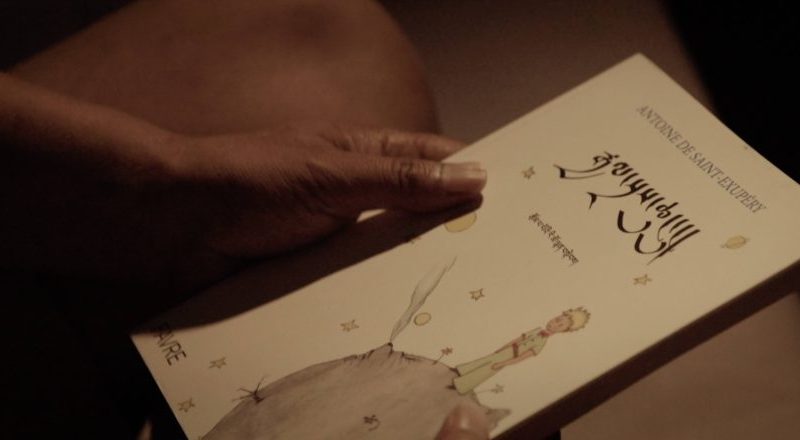INTERVIEW: Documenting the impact of ‘The Little Prince’
Photo: The Miracle of The Little Prince looks at the cultural impact of the novel The Little Prince in four cultures around the world. Photo courtesy of Film Movement / Provided by Film Forum press site with permission.
The Little Prince by Antoine de Saint-Exupéry is one of the best-selling books of all time, having been translated into numerous languages and leaving its impact on cultures and countries throughout the world. The story of a child and a stranded pilot in the North African desert is as well known a text as any other non-religious book.
Marjoleine Boonstra’s new documentary, The Miracle of The Little Prince, looks into the global impact of this foundational book. She investigates the influence the text has had on the Berbers of Morocco, the Pipil of El Salvador, the communities of Tibet, and the Sami of Norway and Finland.
Ultimately, Boonstra is after the power of interpretation, the uniqueness of translation and how different people find commonality in a story of a vanishing culture.
Recently Hollywood Soapbox exchanged emails with Boonstra, who wrote and directed The Miracle of The Little Prince, which is now playing New York City’s Film Forum. Questions and answers have been slightly edited for style.
When did you first read The Little Prince? Did you immediately love it?
I first read the little prince six years ago. To be frank I found the book in an Italian petrol shop and bought it because I was trying to learn Italian at the time. So unfortunately, there is no romantic story about me finding out about the story, like my mother reading the book to me as a little kid. What struck me from the story at once were the straightforward questions of the little prince — crystal clear, yet so difficult to answer.
What inspired you to make a documentary about the novel?
We (the producer Pieter van Huystee, co-scriptwriter Lies Janssen and I) wanted to make a film about the concept of translating, but that’s a strange idea and hard to visualize in a film.
We were wondering how we could do that. It took several months before the idea was born that perhaps we had to take one of the most translated books so that we could compare the different translations (The novel is the most translated non-religious text in the world).
What do you hope is in the minds of those audience members who watch The Miracle of The Little Prince? What do you hope is the ultimate takeaway?
When the audience is watching I hope they see the convergence between language, landscape and cultural identity in different countries. With the film I hope to ultimately transfer the perspective of the Little Prince. In many cases, his child-like view on the world manages to take the role of an objective distant observer.
What do you feel the novel (and your film) says about the power of cross-cultural exchange and the power of translation?
The novel proves that if we manage to keep politics and religion out of the conversation, there is an enormous amount of cross-cultural exchange possible. The original French novel, which was written in a New York hotel room in 1943, says little about the power of translation. The hundreds of different translations however do; it shows the ties between a society and its language.
How difficult was the production for the film?
The largest challenge in this film relates directly to the main subject of the film — translating the four unknown languages spoken in the footage. In previous films I directed, usually just one non-English language was used. With the larger European languages like Spanish or German, the editors can understand the core concepts that are discussed, generally enough to know where to cut the footage. But now, we had to edit footage with four languages utterly unknown to us. The Berber, Sami, Tibetan and Nawhat differ so much from most Anglo-Saxon and Germanic that we had no clue what was said. We therefore first had to transcribe and translate all the footage. That was an enormous amount of work.
By John Soltes / Publisher / John@HollywoodSoapbox.com
The Miracle of The Little Prince, written and directed by Marjoleine Boonstra, is currently playing the Film Forum in New York City. Click here for more information and tickets.

